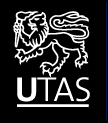Dr Lufan Zou
Technical Director
OZ Optics Ltd
Thursday 23 Feb, 10:00
Centenary 205 (old IASOS seminar room)
Abstract:
Rapid growth in demand for value-added techniques for earth and ocean sciences has focused worldwide interest on optical fibers sensors as the provider of an effective solution to measurement problems. Recent advances in measurement technology have demonstrated that fiber optic sensors are suitable to conduct long-term monitoring of climate change effects on the Ross Ice Shelf in Antarctica and its potential for collapse. When installed on structures, these sensors allow for monitoring important parameters such as deformations and temperatures. Given the exceptional stability and the flexibility with which large structures can be instrumented with an optical fiber sensing network, it can be reasonably expected that optical fiber sensors will become the backbone of measurement systems dedicated to monitoring the state of the infrastructure worldwide.
Coherent pump depletion (CPD)-BOTDA is a new technology for distributed strain and temperature measurements by means of optical fiber. Both the depletion effect on pump beam and the DC component effect on probe beam are elaborately designed to stimulate the phonon when the pulse length (AC component of probe beam) is smaller than the relaxation time of phonon 10 ns, which results in immediate time response and the narrow Brillouin spectrum at the same time. The strong depletion of the pump beam resulting from the strong coherent interaction between pump and probe in the fibers provides accurate local temperature and strain information at high spatial resolution. In current commercialized application (ForesightTM), 100-mm crack detection and 100-km distributed strain and temperature sensing and temperature accuracy of 0.2 °C and strain accuracy of 4 me were achieved, which are of one order higher than that available in current products.


